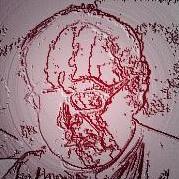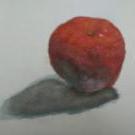-
Posts
138 -
Joined
-
Last visited
-
Days Won
7
Krisp last won the day on July 8
Krisp had the most liked content!
About Krisp

- Birthday 11/07/1970
Contact Methods
-
Website URL
https://www.youtube.com/@jcjacques/about
Profile Information
-
Gender
Male
Recent Profile Visitors
1,832 profile views
Krisp's Achievements
-
Hey thank you Peter! As you well heard, I like to adopt the sinuosity of the poem to follow its harmonic trace. This is the intention of my Laforgue cycle, staying on the edge of the tonal while losing the listener in the meanders of an impossible love. In French, Jules Laforgue's poetry constantly oscillates between poles of irony/Tenderness, or refinement/popular. This is also why I always look for a kind of balance between a song appearance in prosody and a reference to the melody more written in the tradition of French music. Thank you very much for your attentive listening!
-
No need to answer in German... as I already told you I am French, whether you like it or not If you don't understand the lyrics, activate the subtitles provided on YouTube. You will have the pleasure of discovering a magnificent poetry that undoubtedly retains some of its power in English. But if you want to talk about music in a constructive way it's ok. Otherwise this discussion does not need to be
-
Hello dear fellow composers. This poem (1886) is part of Laforgue’s Imitation of Our Lady the Moon. Here the Moon is no longer a muse or confidante, but becomes the star of farewell and forgetting, sealing human hopes in silence and nothingness. I truly believe that this cycle reflects a part of Laforgue’s own biography — that of a young poet caught in an impossible, broken love story, one almost erased from history, save perhaps for the initial of a name glimpsed in his correspondence. At least, that is the conviction I had while reading these poems. And so here is the end of my cycle: a piece deliberately sparse, rarefied, silent. It is also, perhaps, a farewell to Laforgue — for now. Time has come for me to explore new paths (and I have been kindly reminded more than once that I am probably composing with a delay of about 120 years…). I can only hope that these pieces may nevertheless have found some resonance with you. This is one of my most sincere works, born from a curious overlapping of states of mind with Laforgue. And I believe — to confess under the cover of anonymity — that one is never truly safe from falling secretly in love, even at my age. Perhaps this is what makes the kinship so troubling.
-

L'imitation de Notre-Dame de la Lune (Complete cycle)
Krisp replied to Krisp's topic in Choral, Vocal
Hey thank you very much! I just realized that the subtitle track was wrong. It's fixed, we can activate English subtitles without problem. In any case, thank you for listening. -
Hello everyone, I have the immense pleasure of sharing with you the complete cycle of melodies for baritone and piano, the imitation of Notre-Dame de la Lune. It took me 9 months to compose this. I had put the pieces online on Youtube as they were recorded, except for the last one that closes the cycle and that you can discover in this full video. There is also a big remix work here because I wanted a listening that is in continuity, as if it were a concert or a recital (20 minutes a little more). I have chaptered the whole, for more convenience, and above all, you can activate the English subtitles that will help you see the text and music links. I also tried to frame as best as possible this time, provided you can read the score at the same time (I know that some people prefer). The following steps if I were logical would be to make a computer engraving of the partition (the manuscript is pretty, but not very readable anyway). Then file with a society of authors. It's planned... In the meantime, thank you for listening!
-
Oh I'm sorry, I totally forgot this time... And it was too late to correct. I will therefore submit a translation here (let's say you will have an overview of the text without necessarily having the correspondences, but there are several games that I had fun making to match text and music... There is even a quote from Fauré's requiem towards the end...) In any case, thank you and thank you again for listening. It makes me very happy... Litanies of the First Quarters of the Moon Blessed Moon Of sleepless swoon, White medallion For Endymion, Fossil star Exiled afar, Jealous tomb Of Salammbô’s bloom, Pier for the fleet Of Mysteries deep, Madonna and miss, Diana–Artemis, Holy watchtower Of our dark hours, Jettatura For games of Baccarat, Very tired dame Of our rooftops’ shame, Potion to stir The firefly’s blur, Rosette and dome Of twilight psalms, Fair cat’s-eye light Of our last rites, Be the Ambulance Of our lost faith! Be the eiderdown Of the Grand Pardon!
-
But I'm thinking about it! It will probably be clearer that I copy here a translation of the text. It is not easy to read the translation on the Youtube video on the fly. SOLO DE LUNE (after Jules Laforgue) I smoke, sprawled under the sky, On the roof of the stagecoach. My body jolts, my soul is dancing, Like some Ariel. No honey, no bitterness — my soul is dancing. O roads, hills, smoke and valleys, My dear soul — let’s recall a few things. — Her eyes said: “Do you understand? Why don’t you understand?” — O cool woods along the road, O shawl of sadness, Every soul listens a little, And my life must seem lovely! This stagecoach roof Feels like something enchanted. — Her eyes blinked: “Do you understand? Why don’t you understand?” — O moon solo, You defy my pen. O stars, you’re almost frightening, You’re all here! every one! O how brief this hour is! If only there were a way To keep its soul for the autumn to come. — Ah! Why didn’t I fall at your knees? I would have been the model husband — Like the rustle of your dress is the model of all rustles.
-
Thank you so much! It’s truly rewarding to feel heard — even in the smallest details — especially when working in French, which isn’t always the easiest language to share online. I’m really glad it resonated with you. Laforgue offers us a message of lost love — cruel, universal, and timeless.
-
Haha, you’re absolutely right — it would definitely save me a fair amount of pencil lead! The reason I generally avoid using key signatures is that I don’t want to feel boxed into a tonal framework while composing. I need to be able to escape at any moment. (Even though in this case, the harmony remains fairly traditional — if slightly wobbly at times…) I’m also a bit wary of giving the performer the “harmonic solution” upfront — sometimes there are several, and it’s up to them to choose what feels most appropriate. So yes, I tend to approach the page as a blank, open space. Most of my manuscripts are working drafts anyway — I really should take the time to clean them up. And when I do, using key signatures might actually be a sensible option. 😉 As for the reference to Dichterliebe — thank you! That cycle has been with me forever… It’s sort of my singer’s Bible, you know. So yes, there may well be echoes of it in what I write — intentional or not. The coda of Dichterliebe is such a marvel — a very strange and beautiful thing — like a page gently closing, a consolation, the dream-kiss of a beloved. We are, after all, speaking of bitterness and love… so of course, we’re already halfway into that world. In any case, thank you for your listening and your advice.
-
Hello Here is another piece of the cycle "a la lune" according to Jules Laforgue. I didn't count. I must be at 4 or 5 on the same theme. Here is a kind of little song that looks like a waltz. Sweet bitter, of course, since it is lost love... Translation in the video in subtitles. Thank you for your criticism!
-
Thank you, Henry, for your careful listening. Yes, you’ve pinpointed exactly what I’ve tried to do — and what lies at the heart of my exploration through these Laforgue settings: to stay on the edge. On the edge of tonal harmony, of expected progressions, of almost conventional paths — but always trying to veer off, to wander. The same applies to expression: sometimes as simple as possible, sometimes ambiguous, sometimes hidden. I’m trying to find that forest’s edge where Laforgue leads us with his poetry, into his moonlit twilights and his lost loves — which I know all too well. You mention Schubert — of course, and your ear is sharp. I couldn’t deny it. Once you enter these borderlands, how could you not have Schubert in mind? Again, thank you, Henry — your sensitive listening is a true gift that brings light to my moonlit paths.








